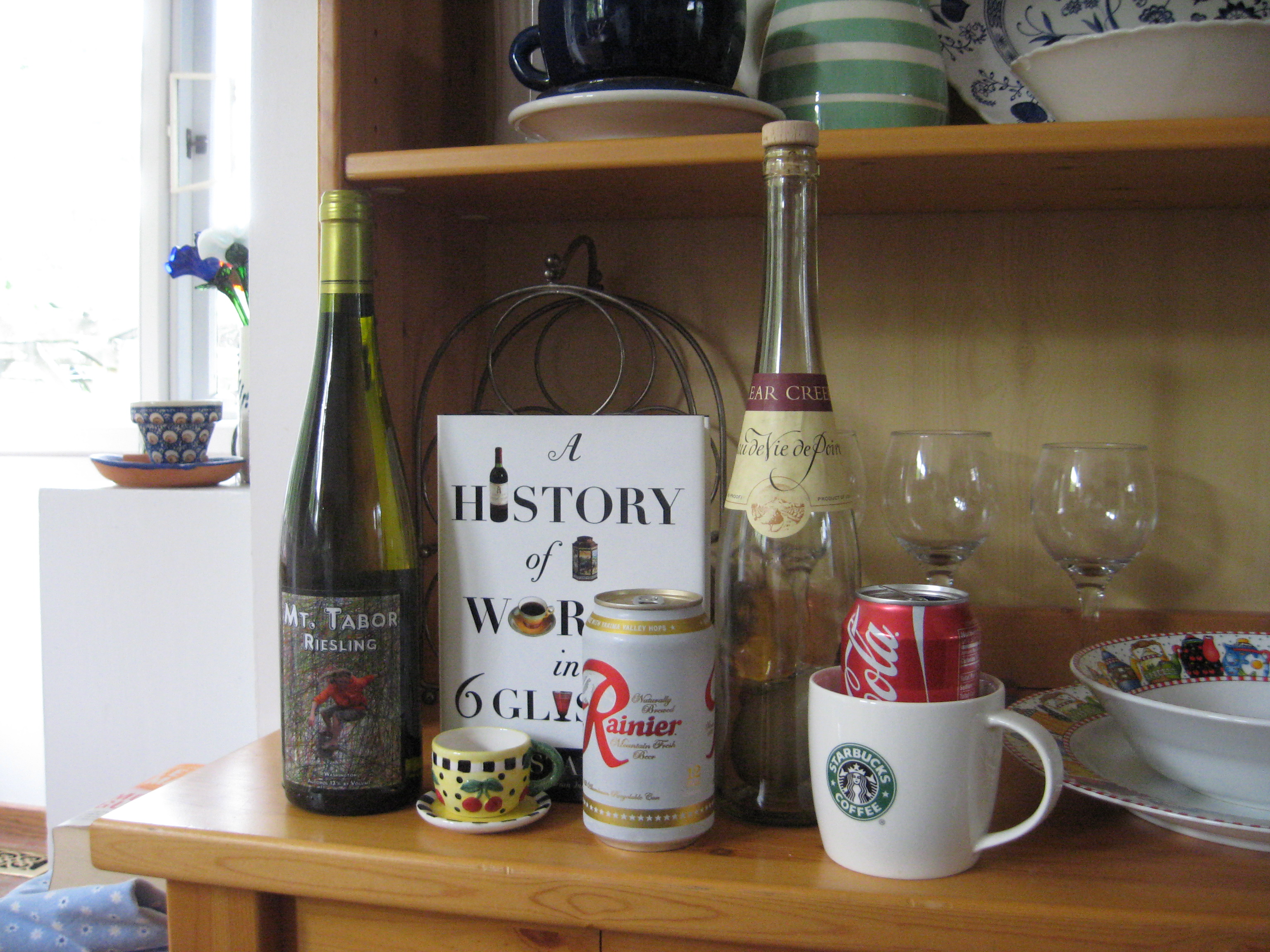 A couple weeks ago I made the pseudo-resolution of trying to read more books in 2014 and I decided to kick off the year with Tom Standage's "A History of the World in 6 Glasses". The book outlines six different types of drinks that have featured prominently throughout history. They are beer, wine, spirits, coffee, tea and Coca Cola. The underlying premise of the book is that these drinks have had medicinal, political, religious and societal influence far beyond what drinks are for: becoming less thirsty. The actual text of the book is 274 pages long.
A couple weeks ago I made the pseudo-resolution of trying to read more books in 2014 and I decided to kick off the year with Tom Standage's "A History of the World in 6 Glasses". The book outlines six different types of drinks that have featured prominently throughout history. They are beer, wine, spirits, coffee, tea and Coca Cola. The underlying premise of the book is that these drinks have had medicinal, political, religious and societal influence far beyond what drinks are for: becoming less thirsty. The actual text of the book is 274 pages long.
As someone who has a whole Pinterest board dedicated to tea, choosing this book was a no brainer because I thought I would fly through it and it would be enjoyable to boot. Now, I actually flew through a majority of the book in the span of about two days. The book is a pretty easy read so you might be wondering then "Well, why did it take so long for you to write a review for it then?" The answer to that question is that one afternoon I just put the book down...and it took me almost 20 days to pick it back up to finish the last drink section. While there were some interesting moments to the book, there wasn't much to compel me to finish reading it.
One thing worth mentioning is that while the book was a "breezy" read, it was actually a little bit off putting to read a work of nonfiction that didn't have any forms of citations on the page. I know that's a little bit of a weird comment and maybe it's just that I have spent too much time trying to read academic papers/articles. However, it felt very bizarre for the author to make assertions in every paragraph about different historical topics without citing the sources directly in-text or in footnotes. There is a full bibliography of course, but I feel like that's not as an efficient way for readers to go find information about a certain topic if they felt like researching it.
The book as a whole felt like a laundry list of facts and for me at least, it wasn't a particularly compelling one. I don't consider myself to be a huge history buff but I felt as though I already knew about 75-80% of the information that was presented to me in the book. All of this does not detract that some people would definitely find the different connections and roles that these drinks had really really interesting. And yes, as someone who is a relatively new adult learning about some of the different alcoholic beverages was interesting and informative. However, I already knew that the Greek scholars drank wine at symposia. I already knew that tea was really important in China and mostly consumed by the British. I already knew that Coca Cola was originally intended to be taken as a medicine. It was somewhat predictable and as a result felt a little dull to me. Not to mention that this book felt very Western-centric in general and I would have liked to have had more elaboration on the parts that included South America, Africa and Asia. So while there were tidbits of new information, there wasn't enough to really sustain my interest.
Overall, I think that the book has a really interesting premise. Thinking about drinks being more than just drinks and thinking about their role in history is a really cool idea. However, this book felt somewhat superficial to me because it was a compilation of facts, a textbook in a slightly more palatable form. In this sense, it was easy to read but not especially innovative or compelling. There was a lot of background information on the drinks(which again, for beer and spirits I really needed), but I really wish that the author made some kind of really interesting argument as to why these drinks in particular are so influential. Standage makes the point in the introduction that half of the drinks that were chosen were alcoholic and half are caffeinated. After reading that, my immediate thought was that he could potentially could have geared the book around the thesis that perhaps these were the most influential drinks due to their ability to induce an altered state of being. Or really just anything that would have made the reader think "Oh hey, he put some real effort and thought into crafting this argument."
I haven't read any other historical non-fiction books in a while so I really can not compare Standage's style to those of other contemporary historians. However, I would rate the book a 2-2.5 out of 5. While he hooked me in with a really interesting concept, the execution of the book leaves something to be desired.
No comments:
Post a Comment